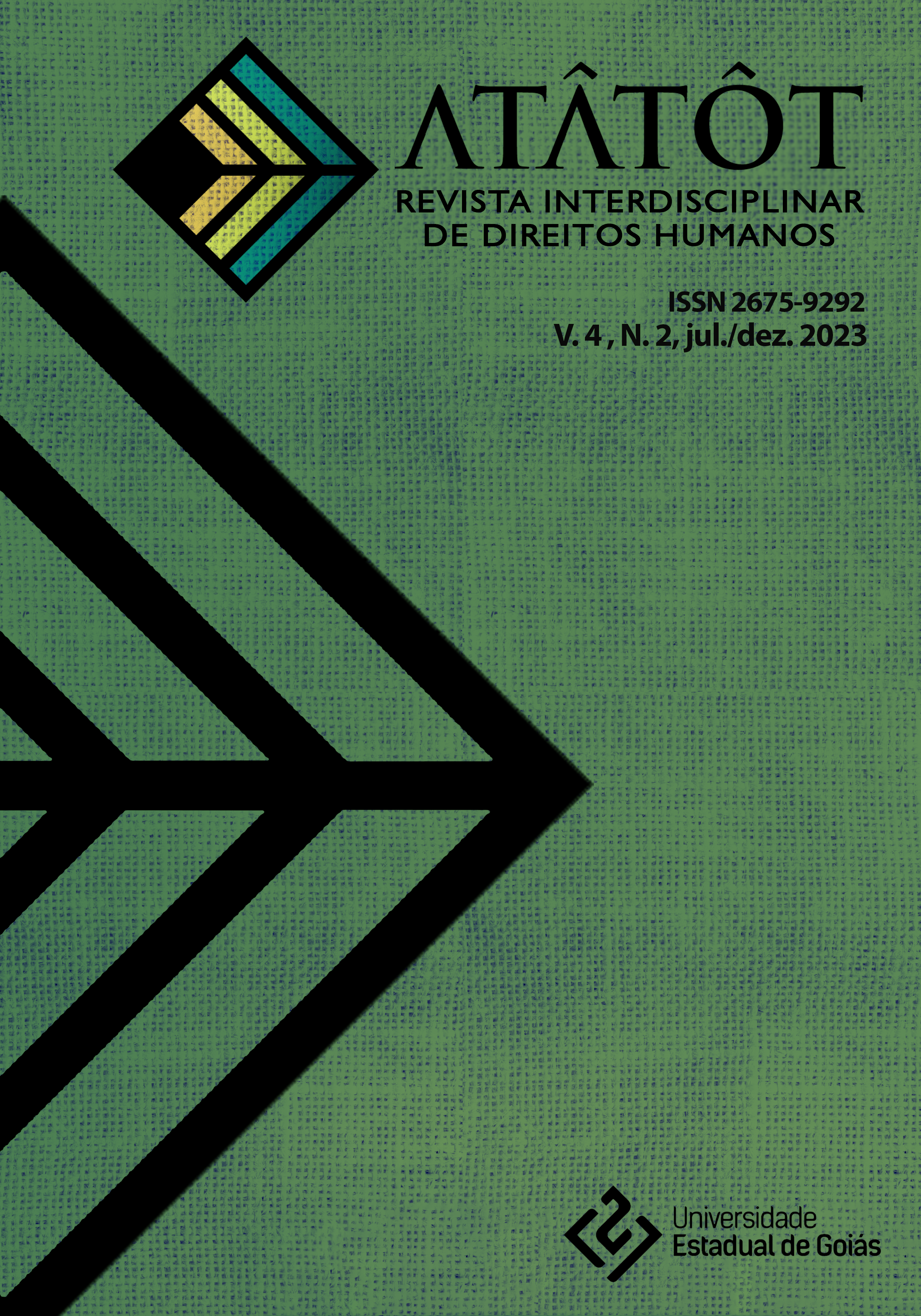Vol. 4 No. 2 (2023): Dossier on Popular and Institutional Protection of Human Rights Defenders in Latin America

Atâtôt, the Interdisciplinary Journal of Human Rights of UEG, is a biannual academic publication under the responsibility of the State University of Goiás. Its aim is to create interdisciplinary spaces for the publication of articles, essays, reviews, and other academic texts on the general theme of human rights, focusing on topics related to democracy, constitutional issues, and social struggles for rights.
In the December 2023 edition, Atâtôt, the Interdisciplinary Journal of Human Rights from UEG, dedicates exclusive space to analyze the challenges and progress in the protection of human rights defenders in Latin America. In exploring popular and institutional strategies, our intention is to stimulate deep reflections on the preservation of these agents of change and strengthen protective networks, thereby contributing to the construction of fairer and more inclusive societies.
The first article "The Popular Protection of Human Rights Defenders: lessons learned in the Elma Novais case", by Luis Emmanuel Barbosa da Cunha, The Elma Novais case stands out as an emblematic example in the creation of a formal/institutional protection methodology for human rights defenders. At the turn of the millennium, while witnesses and children were already protected, defenders did not have adequate safeguards. The experience of popular protection was crucial, revealing how the State's initial approach to protecting Elma Novais was mistaken. The knowledge accumulated and systematized by the Seeds Project represents a historic mark of civil society.
The second article "Bolsonarism and the popular protection of human rights defenders in the Legal Amazon", by Marcelo Fontenelle e Silva, which addresses the relationship between Bolsonarism and the popular protection of human rights defenders in the Legal Amazon. Highlights the negative influence of Bolsonarism in human rights, analyzing electoral data that show their resilience. It concludes by emphasizing the importance of working in a network to protect human rights defenders.
The third article "Integral protection for human rights defenders and the role of Brazilian civil society", by Antonio Francisco de Lima Neto and Ana Claudia Taves, which addresses the protection of human rights defenders in a scenario of increasing violence. It examines a comprehensive perspective developed by civil society over the last 25 years, discussing actions to allow safer action for social movements and defenders. The fundamental role of popular movements and human rights organizations in protecting these individuals and their communities is highlighted. The text offers insights into strategies to address protection challenges in adverse contexts.
The fourth article "HUMAN RIGHTS PROTECTION Essay to suggest a popular, liberating and militant proposal", by Paulo César Carbonari, which proposes an innovative approach to the construction of human rights protection, focusing on popular, liberating and militant perspectives. Integration into processes stands out, popular organizations, with special attention to human rights defenders. The text covers context analysis, debate on vulnerability, assumptions and meaning of protective action, concluding with a summary of the meaning of popular protection.
The fifth article "PROTECTING HUMAN RIGHTS DEFENDERS IN BRAZIL A panoramic view of the existing popular and institutional protection experiences" by Ulisses Terto Neto and Caio Augusto Guimarães de Oliveira, highlights the limitation of advances in human rights in Brazil due to social authoritarianism, opening space for strengthening of the extreme right. Emphasizes that the country's return towards democracy and human rights depends on structural changes, with an essential focus on the role of human rights defenders. In light of the violence faced by these defenders, the document explores alternatives for their protection , analyzing existing experiences, and highlights the importance of the involvement of both civil society and the State.









